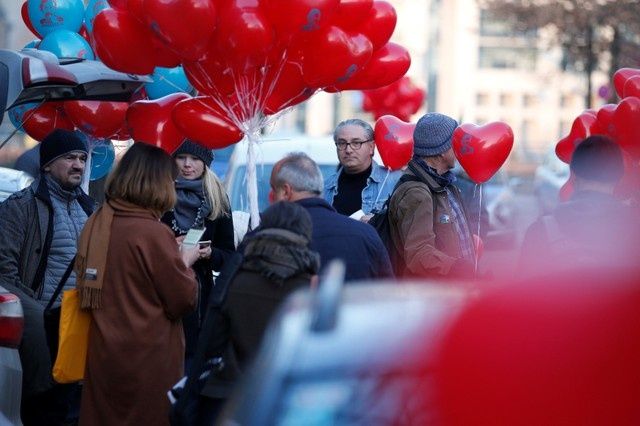Today, Feb. 14th, 2018, marks one-year since journalist Deniz Yucel was imprisoned in Turkey after the government accused him of spreading terrorist propaganda and promoting violence, charges he denies.
RELATED:
The Turkish government started arresting political opponents, activists, and journalists after a failed coup attempt in July 2016. In the crackdown, 28 German citizens were arrested, but only six remain behind bars, including human rights activist and documentary filmmaker Peter Steudner and journalist and translator Mesale Tolu. A total of 50,000 people were detained for “security reasons.”
Yucel imprisonment is according to German Foreign Minister Sigmar Gabriel, "one of the big hurdles in bilateral relations between Germany and Turkey."
Gabriel told DW, Germany's public broadcaster: "We are directing talks towards a fast and just procedure... In our eyes, the release of Deniz Yücel can be the only goal."
Today, on the anniversary of his imprisonment, Turkey´s Prime Minister Binali Yildirim suggested Yucel could be freed soon, but that that decision is not up to him.
"I hope that he will be freed soon. I think that there will be a development soon," Yildirim told German broadcaster ARD.

His comments referred to Yucel's next hearing but didn't give guarantees on his release. "At least he will appear before a court, and every hearing is a chance to be freed," Yildirim said.
Yildirim will visit German Chancellor Angela Merkel Thursday in Berlin, and they are expected to talk about the case, but some think his comments are only intended to improve the atmosphere for the meeting. "We should not fall for this. There is no reason to talk of an improvement,” said Claudia Roth, a Green Party member and one of the vice presidents of the Bundestag since 2013.
Even though Yucel has been in a maximum security prison for one year already, he hasn't been formally accused or charged with a crime.
Turkish President Recep Tayyip Erdogan has called the journalist “an agent and a terrorist, allegedly a journalist, whom the German Embassy hid in their summer house in Istanbul.”
Yucel feels he's being used as a bargaining chip, as Germany might be conditioning weapon sells to Turkey in exchange for the release of their citizens from Turkish prisons. Yucel doesn't want his freedom to be exchanged "for tanks" or the extradition of "former militaries participant in the coup," which have requested political asylum in Germany.
Yucel is a correspondent for the German daily newspaper Die Welt and has been described as a journalist that criticizes both the left and the right, according to Heinrich Boll Foundation's analyst in Istanbul Kristian Barkel.
According to Brakel, Yucel was arrested for his criticism on Turkish government in eight articles he wrote for Die Welt. One of those items talks about Erdogan's power accumulation, and the other one is an interview with the Vice President of the Kurdistan Workers' Party (PKK), an insurgent group the Turkish government considers a terrorist organization.
Turkey launched a military operation against Kurdish militias in northern Syria in mid-January. Since then, the government has arrested more than 600 people criticizing the military intervention, accusing them of spreading “terror propaganda.”